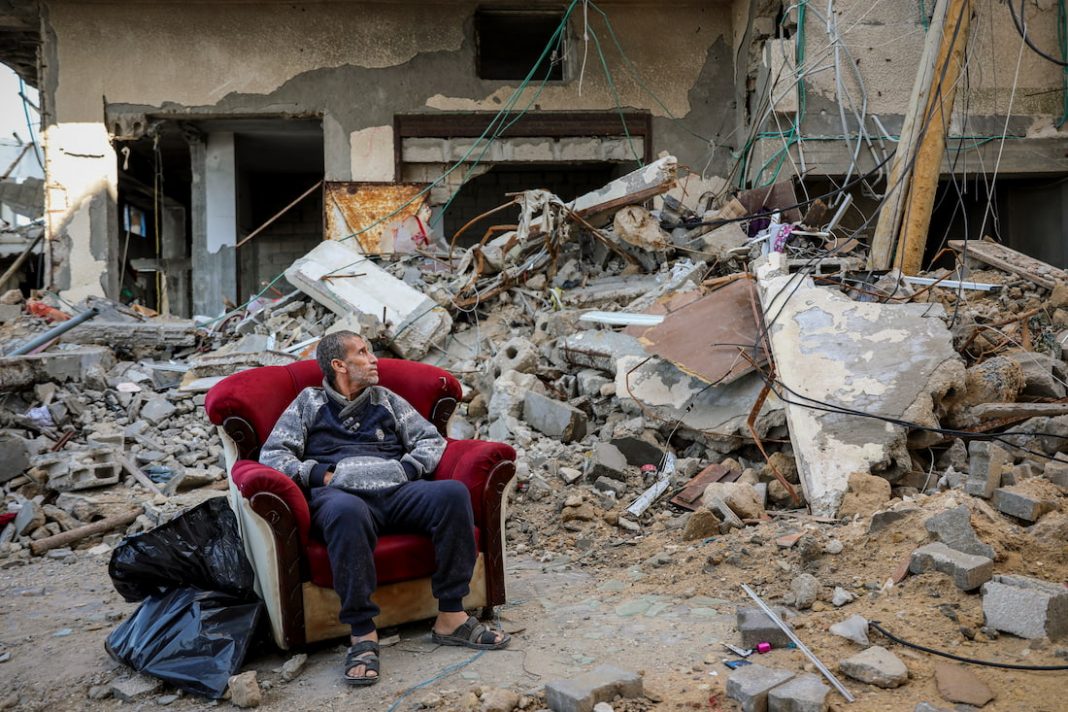Israel’s military says it has resumed combat operations in the Gaza Strip minutes after a temporary truce with Hamas expired, blaming the militant group for breaking the ceasefire.
The truce expired at 7am (0500 GMT) on Friday.
The halt in fighting began a week ago on November 24.
It initially lasted for four days, and then was extended for several days with the help of Qatar and fellow mediator Egypt.
During the week-long truce, Hamas and other militants in Gaza released more than 100 hostages, most of them Israelis, in return for 240 Palestinians freed from prisons in Israel.
Virtually all of those freed were women and children, but the fact that few such hostages remained in Gaza complicated reaching a deal for a further extension.
Hamas, a militant group that has ruled Gaza for 16 years, had also been expected to set a higher price for the remaining hostages, especially Israeli soldiers.
About 140 hostages remain in Gaza, with more than 100 having been freed as part of the truce.
Qatar and Egypt had been making intensive efforts to extend the truce following the exchange on Thursday of the latest batch of eight hostages and 30 Palestinian prisoners.
Israel had previously set the release of 10 hostages a day as the minimum it would accept to pause its ground assault and bombardment.
“We’re ready for all possibilities … Without that, we’re going back to the combat,” Mark Regev, an adviser to Israeli Prime Minister Benjamin Netanyahu, said on CNN ahead of the expiry of the truce.
Israel has sworn to annihilate Hamas, which rules Gaza, in response to the October 7 rampage by the militant group, when Israel says gunmen killed 1200 people and took 240 hostages.
Israel retaliated with intense bombardment and a ground invasion. Palestinian health authorities deemed reliable by the United Nations say more than 15,000 Gazans have been confirmed killed.
Thursday’s hostage releases brought the total freed during the truce to 105 hostages and 240 Palestinian prisoners.
With fewer Israeli women and children left in captivity, lengthening the truce could require setting new terms for Hamas to release Israeli men, including soldiers.
The militant group could in turn seek to have Palestinian male prisoners handed over.
So far, three Palestinian prisoners have been freed for each Israeli hostage.
One of Qatar’s lead negotiators, diplomat Abdullah Al Sulaiti, who helped broker the truce through marathon shuttle negotiations, acknowledged in a recent Reuters interview the uncertain odds of keeping the guns silent.
“At the beginning, I thought achieving an agreement would be the most difficult step,” he said in an article that detailed the behind-the-scenes efforts for the first time.
“I’ve discovered that sustaining the agreement itself is equally challenging.”
Among the newly released were six women aged 21 to 40 including one Mexican-Israeli dual national and 21-year-old Mia Schem, who holds both French and Israeli citizenship.
The other two newly released hostages were a brother and sister, Belal and Aisha al-Ziadna, aged 18 and 17 respectively, according to the Israeli prime minister’s office.
They are Bedouin Arab citizens of Israel and among four members of their family taken hostage while they were milking cows on a farm.
The truce has allowed some humanitarian aid into Gaza after much of the coastal territory of 2.3 million people was reduced to wasteland in the Israeli assault.
More fuel and 56 trucks of humanitarian supplies entered Gaza on Thursday, Israel’s defence ministry and the Palestinian Red Crescent Society said.
But deliveries of food, water, medical supplies and fuel remain far below what is needed, aid workers say.
At an emergency meeting in Amman, Jordan’s King Abdullah on Thursday urged UN officials and international groups to pressure Israel to allow more aid into the beleaguered enclave, according to delegates.
With Reuters



